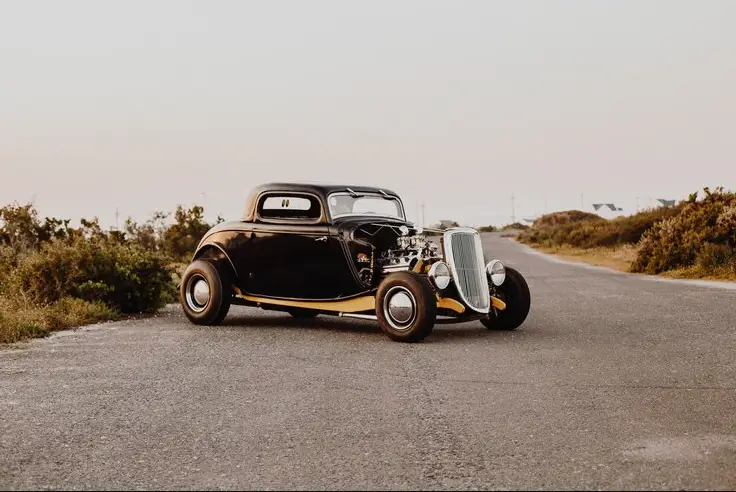Restoring a classic car is a journey that requires time, effort, and significant investment. However, knowing the actual value of your vehicle before and after restoration is crucial to making informed financial decisions. Whether you are restoring a vintage vehicle for personal enjoyment or preparing it for resale, working with a vintage auto appraisal specialist provides clarity on how much your car is truly worth. Appraisals help owners navigate restoration priorities, insurance coverage, and resale strategies to ensure their vehicle achieves the highest possible market value.
The Role of Appraisal in Classic Car Ownership
Classic auto appraisals play a critical role in ownership, restoration, and resale by providing an objective valuation. Here’s how an appraisal can benefit different aspects of classic car ownership:
- Pre-Restoration Evaluation: Understanding the car’s initial condition helps determine whether a full restoration is financially viable.
- Insurance Purposes: Ensures that your car is insured for its true worth, protecting against potential loss or damage.
- Estate Planning and Legal Needs: Essential for legal documentation, including inheritance, estate settlements, and taxation.
- Resale Strategy Development: Helps classic car sellers understand what buyers are looking for and how to maximize value.
- Auction Readiness: Some classic cars are sold at auctions where appraisals help set a competitive reserve price.
How Classic Car Appraisal Differs at Each Stage
Unlike modern cars, classic cars go through various stages of valuation, making appraisals unique depending on the phase of ownership.
Before Restoration
Before investing in a restoration, an appraisal determines the car’s baseline value. This process includes:
- Assessing Structural Integrity: Identifying rust, damage, and wear that could impact overall value.
- Evaluating Originality: Cars with factory-original components typically hold higher value than those with aftermarket modifications.
- Market Potential Analysis: Understanding the demand for similar models in the classic car market.
During Restoration
Midway through restoration, an appraiser can provide guidance to ensure cost-effective decisions:
- Prioritizing Key Upgrades: Identifying which restorations add the most value versus those that may not increase resale potential.
- Authenticity Verification: Ensuring that replacement parts match original specifications to maintain the car’s authenticity.
- Midpoint Market Review: Checking current trends to assess if ongoing restoration aligns with market expectations.
After Restoration (Pre-Resale)
Once restoration is complete, the appraisal focuses on final valuation:
- Comparing Similar Vehicles: Reviewing market prices of comparable models that have undergone similar restorations.
- Reviewing Restoration Quality: Examining craftsmanship, paintwork, upholstery, and mechanical performance.
- Final Documentation: Creating a report to support insurance coverage or potential buyers with proof of authenticity and condition.
The Economics of Classic Car Restoration
Many classic car owners invest in restoration hoping for a profitable return. However, the cost of restoration versus the increase in value should be carefully evaluated. Here are key economic factors to consider:
- Restoration Costs vs. Final Value: Some cars increase significantly in value after restoration, while others may only see a marginal boost.
- Labor and Material Expenses: Sourcing original parts and skilled labor can be expensive but is often necessary for maximum resale value.
- Hidden Costs: Unexpected expenses, such as unforeseen engine repairs or rare part replacements, can affect the total cost.
- Long-Term Investment Outlook: Some classic cars appreciate over time, making restoration a long-term investment rather than an immediate resale opportunity.
Factors That Influence Classic Car Resale Prices
Understanding what buyers look for can help maximize resale potential. Several key factors impact the price of a restored classic car:
- Originality and Matching Numbers: Cars with original factory parts and matching engine and chassis numbers tend to hold higher value.
- Historical Significance: Limited production runs, celebrity ownership, or association with a particular era can boost appeal.
- Aesthetic Appeal and Condition: A car’s appearance and flawless condition significantly impact desirability among collectors.
- Provenance and Documentation: A well-documented ownership history and restoration records add credibility to the valuation.
- Market Demand and Collector Trends: Certain models gain popularity over time due to nostalgia and media exposure, increasing their value.
Conclusion
From restoration to resale, classic auto appraisals play an essential role in determining a car’s true value. Whether you’re preserving a classic for future appreciation, restoring a cherished heirloom, or preparing for resale, a professional appraisal ensures that you make well-informed decisions. By working with a vintage auto appraisal specialist, you can maximize your investment, protect your car’s value, and navigate the complexities of the classic car market with confidence.





























